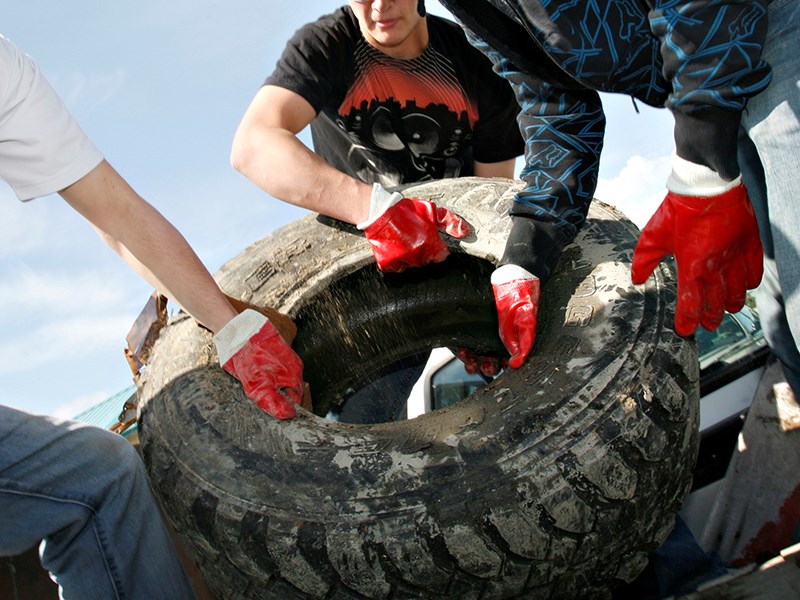Powell River’s annual Trash Bash organizers are again looking at including drop off of larger residential items as a preemptive measure to illegal backcountry dumping, said Inger-Lise Burns, an event organizer.
Trash Bash volunteers collected 26 tons of illegally dumped garbage and large residential appliances in 2015, more than double the amount collected the year prior.
Burns said she thinks the amount of illegal dumping, despite being a persistent problem in Powell River, is decreasing due in part to the Powell River Regional District (PRRD) event, which began in 2011.
“That does not mean we should slack off our efforts at all though,” she said.
Last year had a $16,400 budget to pay for tipping fees and run the event and PRRD has requested a $1,000 increase from City of Powell River to bring its total contribution up to $5,000.
While the request raised questions at a recent city committee of the whole meeting, Mac Fraser, chief administrative officer, told council he thought the increase was warranted and called it “money well spent.” Council has yet to vote on the increase.
Burns attributes last year’s doubling of garbage to the event including residential appliances and other larger items from people’s homes, not to an increase in illegal dumping.
Last year, the one-day event allowed residents to drop off items including mattresses, fridges, freezers, clothes washers and dryers, clean wood waste, scrap metal, car tires and furniture. Volunteer pickup was provided for people with mobility issues. Household garbage was not included.
Burns said this year organizers will be more vigilant to ensure people are not trying to dispose of regular household garbage.
“Part of the intent of adding these extra household items was to prevent their illegal dumping,” said Burns.
In 2014, volunteer collectors brought in 10.25 tons of waste, a decrease of about two tons from the year before. In 2012, 14 tons was collected, about three tons less than the previous year.
Those numbers, explained Burns, vary from year to year because of the number of volunteers who participate and do not necessarily reflect the amount of illegally dumped trash available for collection.
Burns said that by giving the public a chance to dispose of larger items that may have otherwise become illegally dumped, the event has added a preemptive element to it.
Trash-bashers will also have a new tool for increasing the efficiency of their efforts. Burns explained that a smartphone app called TrashOut will make cleanup easier. The app provides users with a platform to report GPS coordinates of illegal dumpsites and include a photo and a description of the contents of the dump.
Burns said the answer to the dumping is not necessarily to just give the public an easy way to dispose of items. The solution must also include public education on repurposing and learning how to fix items, she said.
“The bigger questions are whether we really need to be getting rid of these items,” said Burns, “and if they really are at the end of their lifespans.”
Trash Bash takes place Saturday, April 30.



